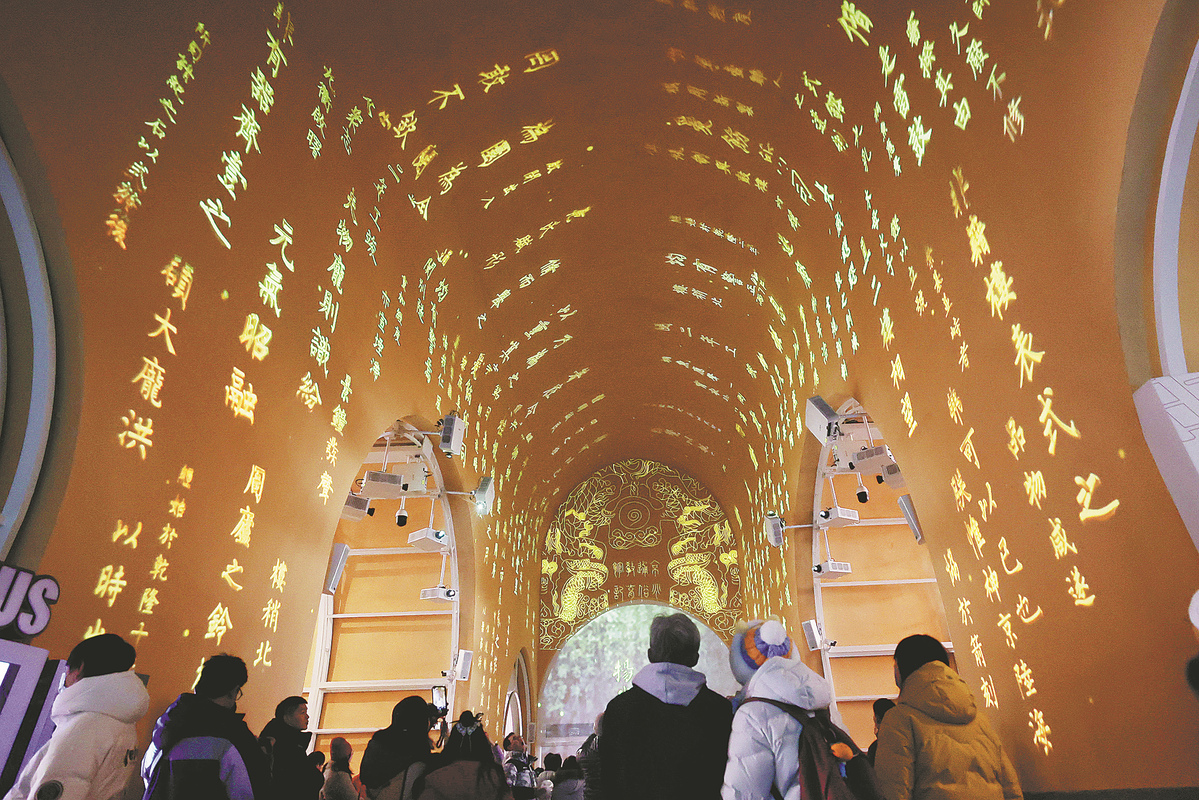Beijing eyeing more foreign travelers


More measures to better facilitate payments and enhance cultural experiences are suggested to attract foreign tourists to Beijing as the city plans to deepen construction of an international consumption center, deputies and political advisers said.
Inbound tourists often face challenges using the internet, making payments and negotiating traffic while traveling in China, said Miao Lu, secretary-general of the Center for China and Globalization, during the ongoing legislative and political advisory sessions of the city. Miao is also a member of the 14th Beijing Municipal Committee of the Chinese People's Political Consultative Conference.
For example, some hotels in the city still lack the capability to accommodate foreigners. Though Alipay and WeChat Pay are widely used by Chinese citizens, foreigners remain wary of these over privacy concerns. The payment limit of mobile payment tools also hampers purchase of high-value commodities, Miao said.
"As the capital city and the country's political and cultural center, Beijing has rich tourism resources. However, inbound tourism in Beijing is still much lower than pre-COVID-19 levels, and needs to recover and develop," she said.
Miao suggested that the city provides cheaper internet services, installs more POS machines in major merchant outlets, and builds payment service desks at airports and railway stations for currency exchanges, mobile payment app downloads and usage guidance.
Beijing plans to deepen construction of an international consumption center, and to give full play to the fundamental role of consumption in economic development, according to a draft plan for the city's economic and social development in 2024.
The city will also improve its international consumption service capacity, enhance overseas marketing, make mobile payment more convenient for foreign tourists and add self-service equipment at departure tax refund ports, according to the plan.
Zhai Yanwei, deputy general manager of Beijing Badaling Culture and Tourism Group and a deputy to the second session of the 16th Beijing Municipal People's Congress, said the city can attract foreign tourists by providing immersive cultural experiences.
"Beijing is an ancient city with a vast cultural heritage. Traditional Chinese culture should be further explored and converted into something that tourists can touch and see, so that foreigners can feel the charm of the city," she said.
In October, the Badaling Great Wall launched a customized product called "One Person's Great Wall" to attract foreign tourists.
It allows a small group of travelers to tour an expanded section of the Great Wall. Tourists can climb the ancient structure, take cable cars, have their photos taken by professional photographers and finally get a certificate at the end of the trip.
"It will not be crowded so they can take it slow. Our guides can provide rich knowledge about the wall's culture and history in various languages," Zhai said, adding that 10 of the 36 merchants in the vicinity can accept foreign bank cards, and 20 have POS machines.
Bai Fan, chairman of Beijing Tourism Group and a deputy to the Beijing Municipal People's Congress, said more preferential policies can be expected in the future to boost inbound tourism.
The company will develop culture-themed tourism and intangible cultural heritage-themed tourism, as well as personalized services for foreign tourists in Beijing.
Luigi Gambardella, president of ChinaEU, an international association promoting digital and high-tech cooperation between Europe and China, is a frequent visitor to China. He said making payments is a common challenge faced by foreigners.
"Foreigners who don't possess a Chinese bank card — which is not easy to apply for — are left with no choice but to use international credit cards in China, where they were accepted. Before COVID, every time I was in China, I had to carry cash around for paying for services such as taking a taxi."
He began to use mobile payment in China after Visa and Mastercard cardholders were allowed to link their cards with WeChat Pay last year.
"The shift … is a significant step forward. It greatly enhances the experience of foreign visitors and residents in China, making daily transactions seamless and integrated," he said.
Du Juan and Wang Songsong contributed to this story.
chenmeiling@chinadaily.com.cn



































